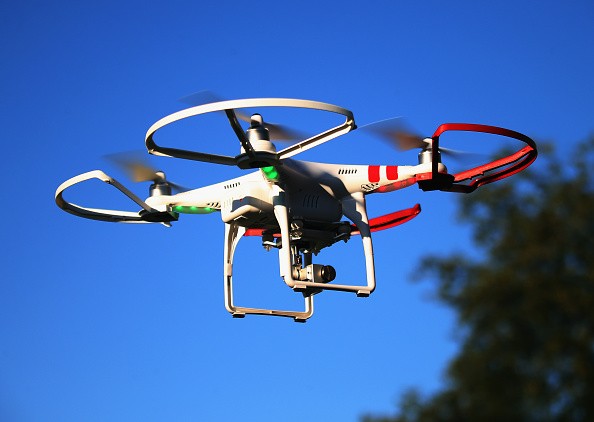SZ DJI Technology Co., the world’s top maker of consumer-grade unmanned aerial vehicles (UAVs), is making inroads into the agriculture industry with the launch of a crop sprayer that will test the profitability of drones in the farming sector.
The Shenzhen-based DJI, which is credited for helping popularize drones worldwide with its $1,000 user-friendly devices, has developed a $15,000 eight-rotor drone designed to spray pesticides on crops, a company spokesman said.
DJI said that the battery-powered drone, DJI Agras MG-1, can spray pesticides on 7-10 kilometers of farmland in an hour, depending on how much it needs to climb, descend, or turn to follow terrain. It will be made available first in China and South Korea and is expected to be released in other markets at a later time, the company said.
The drone maker, whose valuation is at an estimated $8 billion based on its latest funding round, is now betting its success will carry over into the farming industry.
"Its push into the sector could open the way for other drone makers--or prove that agriculture isn't the cornucopia for unmanned aircraft that some had hoped," the Wall Street Journal said in a report on Friday.
According to the Association of Unmanned Vehicle Systems International, the world's largest trade group for drones, farming has the biggest potential market for UAVs. In a 2013 report, the Virginia-based group expects agriculture to account for 92 percent of an estimated $82 billion economic impact from commercial drones in the U.S. between 2015 and 2025.
But while the commercial use of drones has steadily risen worldwide, the agriculture sector has yet to capture a large share of the market. Fewer companies are applying for U.S. Federal Aviation Administration (FAA) approvals in the U.S. to fly drones in farms for use in filmmaking, mapping, and industrial inspection, according to recent studies.
The FAA started to regularly approve drones for commercial use in September the previous year. Of the first 1,355 approvals, only 90 were for agriculture, according Piper Jaffray Investment Research, a sharp contrast to the 670 approvals for aerial filming.
Much of the potential of drones for use in farming has been in their ability to collect aerial data on crops at a large scale. This information can help farmers tend to their fields more precisely by adding or reducing irrigation or pesticides as necessary.
But so far, agricultural drones have yet to live up to their promise as getting actionable data from crops is far more complex than making a map or filming a movie, analyst said.
But despite the rough start, other drone makers have started to follow DJI's lead. Paris-based Parrot SA, which has dominated the lower end of the consumer drone market, has announced plans to collect data on 200,000 acres for farmers in France this year.
Agricultural drones "are at an early phase," said Parrot CEO Henri Seydoux. "It's true for all the commercial spaces. There is a lot of expectation but still not a big result."
Japanese farmers have also used large gasoline-powered unmanned helicopters built by Yamaha Corp. since the early 1990s to spray their fields. In 2005, Yamaha has started to offer their drones in South Korea, while the FAA approved the drone for limited use in the U.S. earlier in May this year.
Analysts said that DJI's farm drone is likely to struggle in winning over Western farmers accustomed to tending to larger areas. Large U.S. farms have usually flown small planes that can carry hundreds of gallons of pesticide to spray their fields, as the planes are cheap to hire and efficient in covering large areas.
Robert Blair, an Idaho farmer and vice president of agriculture for commercial-drone company Measure LLC, is skeptical over the use of drones in spraying pesticide and collecting data on crops.
"It's a niche market," he said.



























